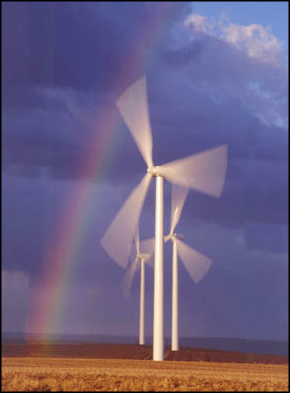Picking up any newspaper or listening to any news outlet will have you wondering if the days of a prosperous U.S. economy are over. There isn't anything new to invent (we have heard that before).
How did we get here and where do we go from here?
What is the next boom?
Here's a compilation of events/transformations that got us here:
Year 2K and Internet boom -massive spending in the hardware/software industry (PC growth)
-telcos ramped up by laying pipe
-govt flooded market with money to fight off any 1/1/2000 problems
-easy money led to "dumb" IPOS (remember Pets.com?)...big fees for investment bankers
-"day trading" a new industry
(
the first leg of the financial industry greed)
The end of the Net boom and the recession officially started with 9/11
Fed lowers interest rates to stimulate economy after 9/11-home building wave starts (demand for lumber, concrete starts)
-home prices start to increase causing refinancing, line of credit boom---consumer wave starts
-Govt creates Homeland Security (security industry booms)
-housing boom starts with all time low interest rates (stock day trading shifts to day trading homes)
-unprecedented hurricane activity (and strength) triggers roofing/repair industry
-home builders, realtors, mortgage brokers see record prosperity
-the financial industry create esoteric investments based on mortgages (
second leg of the financial industry greed)
CHINDIA (China and India two massive economies start to ramp-farming, manufacturing, medical equipment companies
-commodity prices skyrocket
-the tipping point for finding cheap oil and Chindia's massive appetite create perfect storm
-Olympics in China create big spending for one time event
-oil prices reach record levels impacting consumers and manufacturers..the start of the CleanTech money flow
-US Dollar falls to record levels
What caused the upcoming perfect storm?-Home prices crater causing foreclosures, home-builder weakness
-oil prices dive on economic slowdown (hedge funds on the wrong side of this trade are forced to liquidate contracts causing rapid drop in price)
-worldwide economic slowdown and financial industry
-Govt approves $700b bailout of financials
-Auto industry asks for a government handout
Oil and natural gas prices drop drastically
-Cleantech investment comes to a halt (a massive newly created industry that was expected to resurrect our economy)
-Photovoltaic prices (solar cells) expected to drop in '09
-Pickens delays his wind farm plan
The economy is cyclical with varying sizes of booms and busts.
The question is what technology, government mandate, or event will create the next boom?












